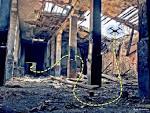 Promising drone Frigate, which was held at the MAKS air show 2015, will be able to develop speed up To 700 kilometers per hour, said the Director of the unmanned area organizations "Kronstadt" (formerly ? "Transas" ) Nikolai Dolzhenkov. Promising drone Frigate, which was held at the MAKS air show 2015, will be able to develop speed up To 700 kilometers per hour, said the Director of the unmanned area organizations "Kronstadt" (formerly ? "Transas" ) Nikolai Dolzhenkov.
"Frigate" would have playfulness 600-700 miles per hour ? unattainable agility for today's helicopters ", ? the news Agency of words Dolzhenkova.
according to his statement, that drone will be able to occupy a niche between airplanes and helicopters. As reported in the press service of " Kronstadt ", the future development is designed to carry 1-1, 7-ton payload and stay aloft for about 10 hours." Kronstadt " plans to cooperate in the creation of the advanced research Foundation and VEB, said authorized organization." mass production "Frigate" will be launched in 2022 ", ? added Dolzhenkov. Before Dolzhenkov reported that mass production of shock-reconnaissance UAV new generation "Orion-1" will be established from 2019. Also at MAX-2015 Firm Zala Aero Group (part of the concern "Kalashnikov" ) for the first time presented a new tactical airborne reconnaissance complex Zala 421-A large flight range and duration of use. Also, at the beginning of the international air show MAKS-2015 United instrument Corporation for the first time provided photos of Russian reconnaissance and strike drone hovercraft " Teal ". MAX-2015 is held in Zhukovsky from 25 to 30 August. It is anticipated that the event will be attended by delegations in over 80 countries, and in the exposition will be attended by more than 600 Russian organizations and more than 150 foreign organizations. Certain countries will not be represented at the air show ? these include, for example, Israel and Ukraine. This year, MAX-2015 participate 584 Russian and 156 foreign organizations from 30 countries. Its products are Airbus, Boeing, Pratt
sections: Politics
|